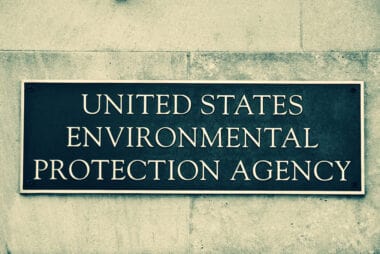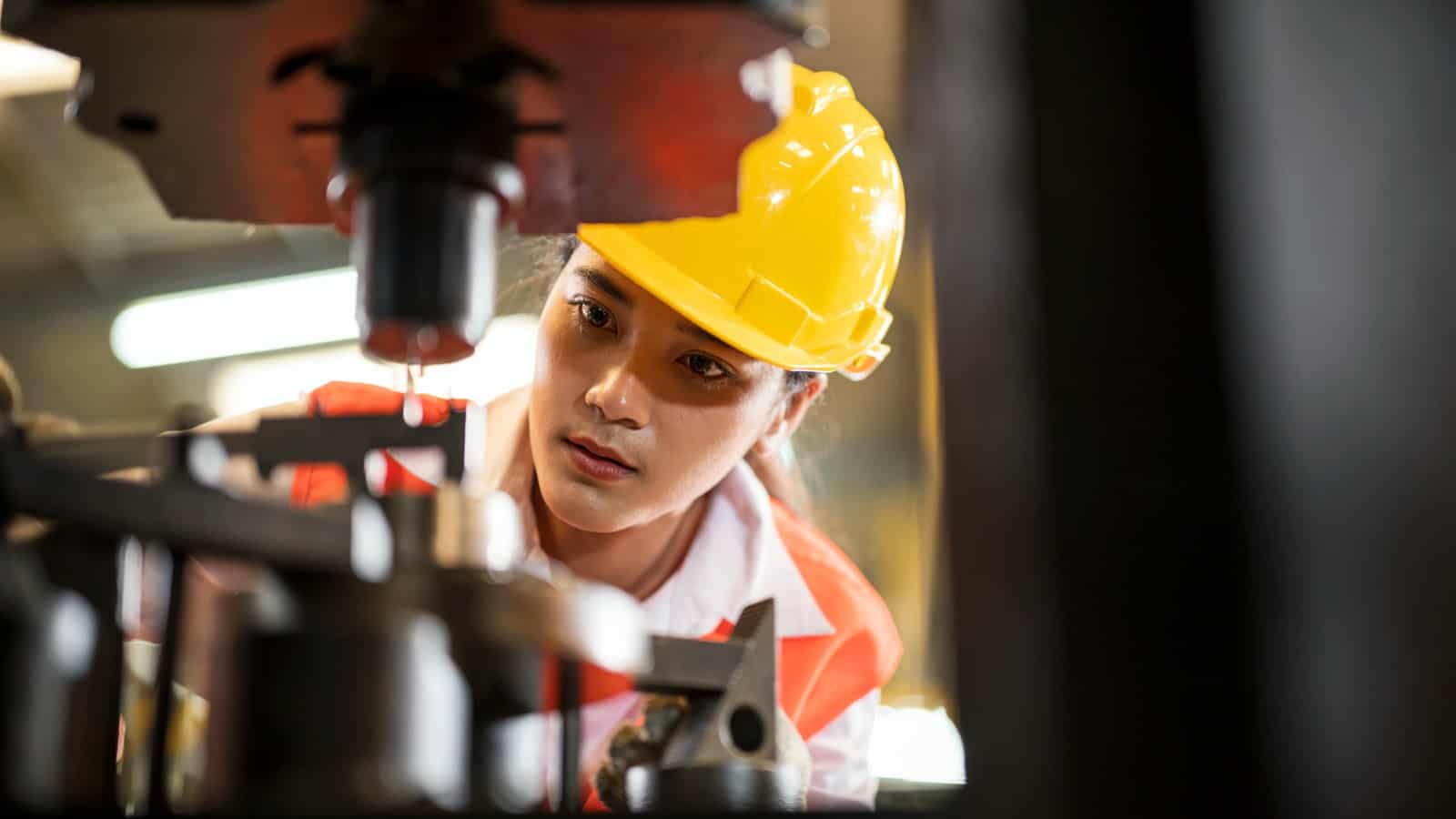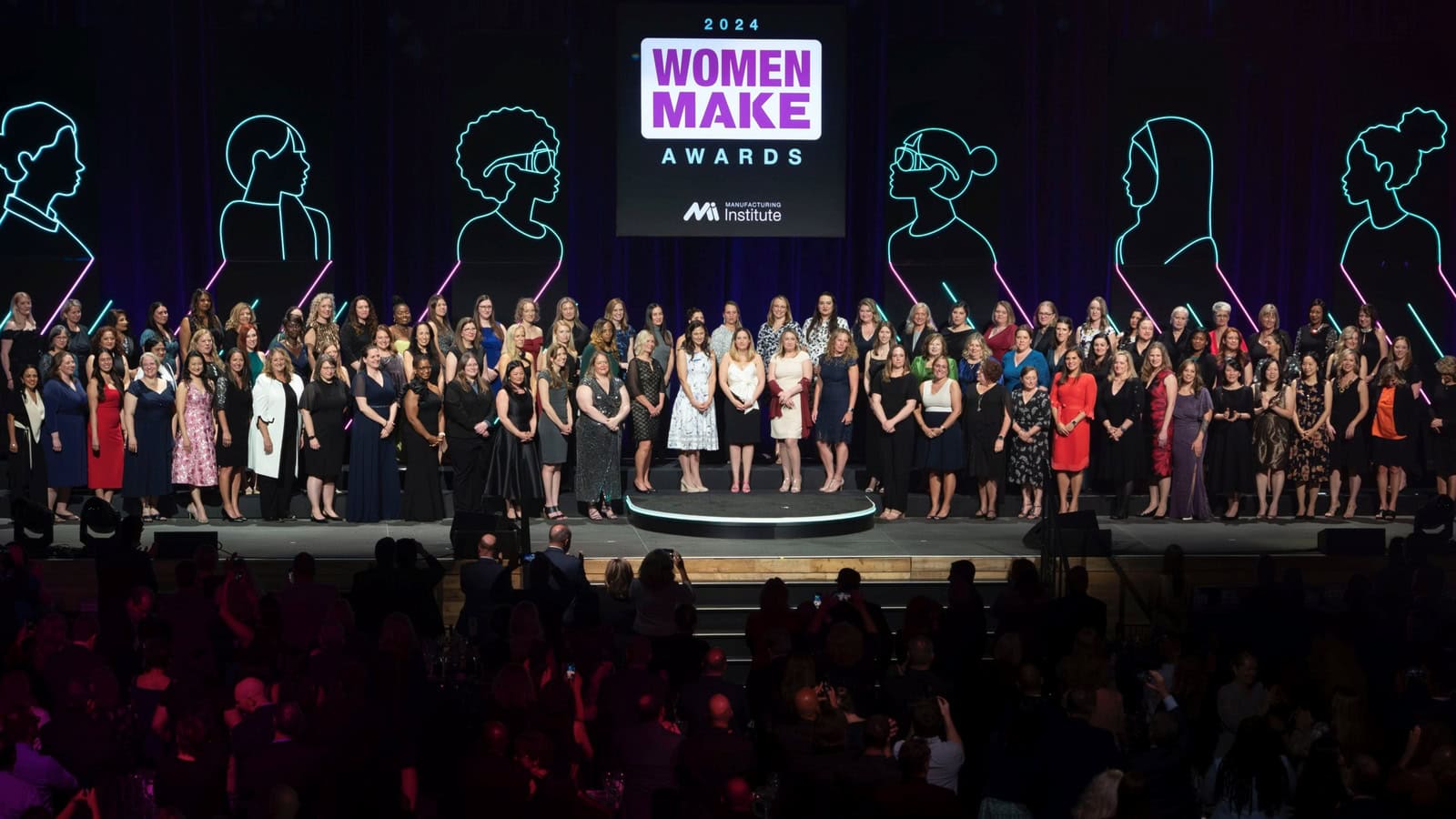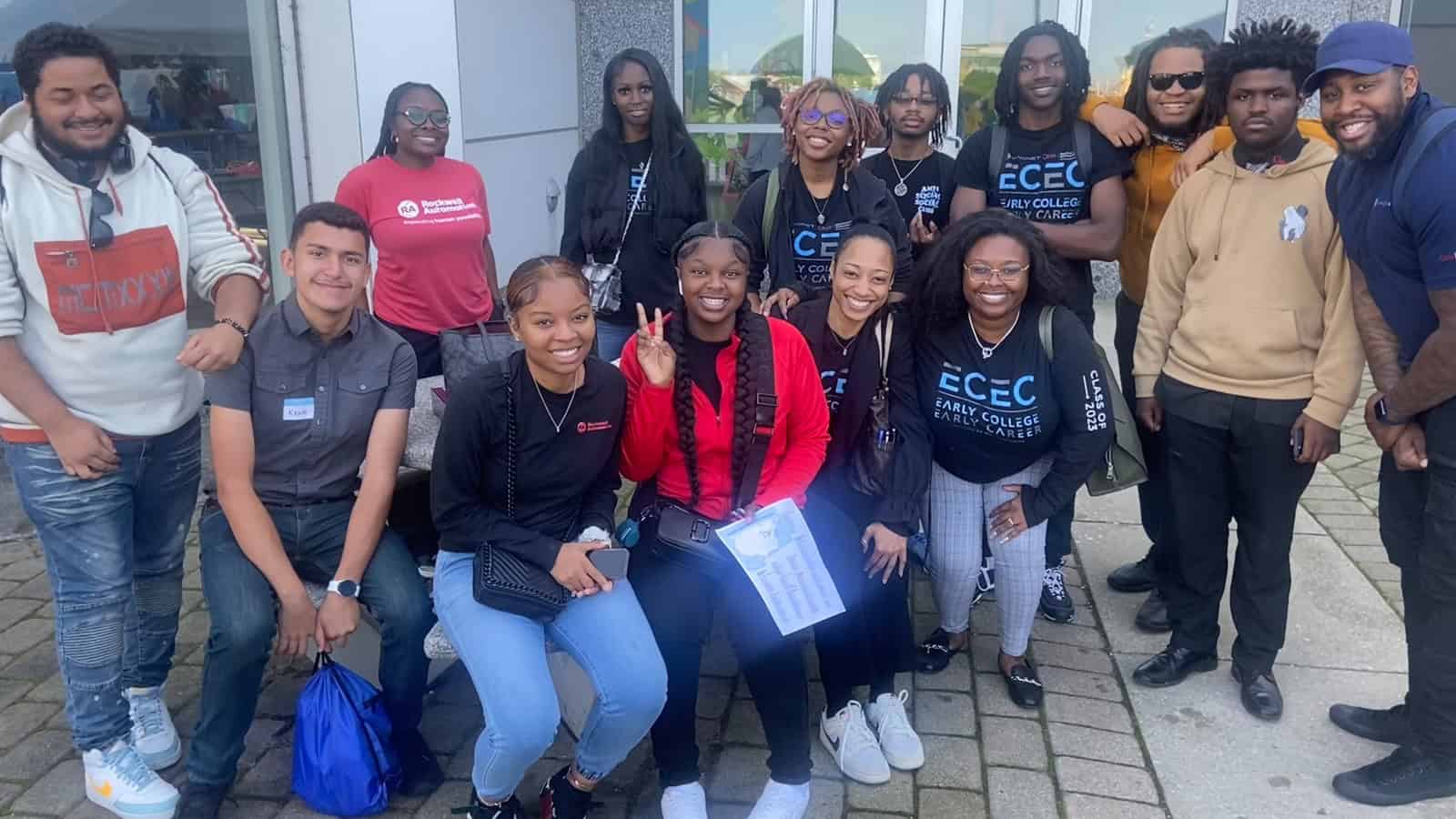NAM to Senate: Administration March-in Proposal Undermines IP, Innovation

The Biden administration’s push to invoke “march-in” rights is unlawful and would have “disastrous consequences” for the United States if enacted, the NAM told the Senate Tuesday.
What’s going on: Ahead of a Senate Judiciary Committee hearing on intellectual property in the biopharmaceutical sector, the NAM warned of the potentially dire consequences of the proposed march-in framework issued by the National Institute of Standards and Technology.
- The NIST proposal would allow the federal government to “march in” and seize manufacturers’ patent rights if an innovation was developed in any part with federal dollars.
- In the biopharmaceutical sector and other innovative industries, federal funding plays an important role in supporting early-stage research—but further R&D, product development and commercialization require hundreds of millions to billions of dollars in additional capital from investors and established companies.
- Robust IP protections ensure that manufacturers can bring innovative products to consumers.
Why it’s a problem: March-in would violate manufacturers’ IP rights and prevent investment into lifesaving and life-changing technologies, according to NAM Vice President of Domestic Policy Charles Crain.
- “Allowing march-in based on the price of a product or technology, as the NIST guidance proposes … would undermine manufacturers’ IP rights and have sweeping ramifications for innovation in the United States and America’s world-leading innovation economy,” Crain told the committee.
- Committee member Sen. Chris Coons (D-DE) agreed during the hearing that the proposal is fundamentally flawed. “Any company [that] invents [anything] or any researcher who invents anything is now open to the federal government saying, ‘I want that, and I don’t agree with the price you’re setting for it,’” he said.
What should happen: Congress must stop NIST’s overreach, Crain said.
- “Policies that threaten IP protections, like NIST’s proposed march-in guidance, will cede one of our greatest advantages to our competitors. Manufacturers [look forward] to work[ing] with the committee to ensure the U.S. maintains the strongest IP protections in the world in order to spur the discovery and commercialization of inventions that improve health and quality of life for all people.”
NAM Publishes First-of-Its-Kind Report on Vast Potential of Artificial Intelligence for Manufacturers
Washington, D.C. – The National Association of Manufacturers released a first-of-its-kind report, “Working Smarter: How Manufacturers Are Using Artificial Intelligence,” detailing use cases for artificial intelligence in manufacturing and case studies of how manufacturers are already implementing AI technologies to strengthen America’s workforce, advance innovation and improve the quality of life for everyone.
The report provides an overview of insights from leading manufacturers, including Johnson & Johnson, Schneider Electric and Hitachi, on how AI can improve efficiency, product development, safety, predictive maintenance and supply chain logistics. The report also outlines a series of recommendations on how policymakers can help support the safe, responsible development of AI while promoting innovation and growth.
“So much of the media and policymaking conversation is focused on generative AI, but AI is far more than that for modern manufacturers,” said NAM President and CEO Jay Timmons. “It’s infused increasingly throughout the shop floor, research and development and beyond. Manufacturers are leading the way in the use and development of new AI technologies. From developing more effective clinical trials and improving workplace safety to strengthening supply chain resiliency and supporting workforce training for employees, AI is unlocking new opportunities to strengthen our modern manufacturing workforce and improve the lives of all Americans. Congress and the Biden administration can support manufacturers’ adoption of AI by enacting strong data privacy protections, investing in workforce training and providing regulatory certainty.”
“All possible futures for modern manufacturing in the U.S. involve AI,” said Johnson & Johnson Executive Vice President and Chief Technical Operations & Risk Officer and NAM Board Chair Kathy Wengel. “Given the importance of this generational technology, policymakers must develop sensible, carefully thought-out frameworks for various AI applications—and they should lean on manufacturers’ years of experience to engineer those frameworks. We need a policy environment that supports innovation and growth in manufacturing AI, because it will bolster U.S. competitiveness and leadership in this critical emerging field.”
Policy recommendations include the following:
- Invest in R&D and career technical education institutions that train the modern manufacturing workforce.
- Enact federal privacy legislation that advances individuals’ privacy and provides legal clarity that supports continued innovation and competitiveness.
- Employ a risk-based approach that tailors any new AI regulations—only if new regulations are necessary—to specific use cases and minimizes compliance burdens.
- Ensure that regulatory frameworks are aligned globally to maintain U.S. global leadership. The more disparate the approach to AI around the world, the more time, energy and investment companies will need to spend navigating misalignments.
Learn more here.
-NAM-
The National Association of Manufacturers is the largest manufacturing association in the United States, representing small and large manufacturers in every industrial sector and in all 50 states. Manufacturing employs nearly 13 million men and women, contributes $2.89 trillion to the U.S. economy annually and accounts for 53% of private-sector research and development. The NAM is the powerful voice of the manufacturing community and the leading advocate for a policy agenda that helps manufacturers compete in the global economy and create jobs across the United States. For more information about the NAM or to follow us on Twitter and Facebook, please visit www.nam.org.
NAM First-of-Its-Kind AI Report Includes Policy Recommendations

Artificial intelligence is improving efficiency, workplace safety, product development, machine maintenance and supply chain logistics at manufacturing facilities everywhere, according to a new, first-of-its-kind report from the NAM.
What’s going on: “Working Smarter: How Manufacturers Are Using Artificial Intelligence,” released today, details use cases for AI in the sector, discussing how manufacturers nationwide are using it to improve lives everywhere.
- The report features deep dives on AI-powered technologies at manufacturers, including Johnson & Johnson, Schneider Electric and Hitachi.
Trailblazers need good policy, too: “From developing more effective clinical trials and improving workplace safety to strengthening supply chain resiliency and supporting workforce training for employees, AI is unlocking new opportunities to strengthen our modern manufacturing workforce and improve the lives of all Americans,” said NAM President and CEO Jay Timmons. “Congress and the Biden administration can support manufacturers’ adoption of AI by enacting strong data privacy protections, investing in workforce training and providing regulatory certainty.”
- Legislators should “lean on” manufacturers’ deep experience when drafting AI-related legislation, added Johnson & Johnson Executive Vice President and Chief Technical Operations & Risk Officer and NAM Board Chair Kathy Wengel.
- “All possible futures for modern manufacturing in the U.S. involve AI,” she said. “Policymakers must develop sensible, carefully thought-out frameworks for various AI applications. … We need a policy environment that supports innovation and growth in manufacturing AI, because it will bolster U.S. competitiveness and leadership in this critical emerging field.”
The recommendations: The report contains immediately implementable policy recommendations for lawmakers:
- Invest in research and development and career technical education institutions to train the modern manufacturing workforce.
- Pass federal privacy legislation to advance individuals’ privacy protections and give legal clarity that will support continued innovation by manufacturers.
- Use a risk-based approach to new AI regulations that tailors any future laws to specific use cases and minimizes the burden of compliance.
- Ensure that AI regulation is aligned globally.
EPA Chemical Rule Will Add Delays, Costs for Manufacturers

The EPA recently finalized a rule that establishes a process for conducting risk evaluations for certain chemicals—but it will only hamstring U.S. manufacturing competitiveness if implemented, the NAM said this week.
What’s going on: In a final rule issued late last month under the Toxic Substances Control Act, the EPA “will now consider exposure to chemicals in air and water and, when possible, combined risks from exposure to multiple chemicals” (Chemical & Engineering News).
- “The [agency] will also consider risks to workers without assuming that they are wearing personal protective equipment [and] … chemical uses required for national security or critical infrastructure.”
Why it’s important: The final regulation will unnecessarily cost manufacturers in both time and money.
- The “new TSCA risk evaluation rule adds too many additional barriers and requirements on manufacturers and risks creating de facto bans on chemistries essential to both existing technologies and the development of new innovative materials,” the NAM said Monday.
- “Manufacturing relies heavily on new and existing chemicals, which are the building blocks of technologies that make modern life possible,” NAM Vice President of Domestic Policy Brandon Farris told the agency last December. “To ensure continued access to the newest chemicals which can make essential technologies even more effective and efficient, TSCA should be administered in a manner that protects health and the environment while avoiding unnecessary adverse economic impacts on business enterprises.”
What should be done: The agency should revise the final rule, the NAM said.
IRI Announces 2024’s Top Innovator Finalists

The Innovation Research Interchange has announced the finalists for this year’s IRI Innovation Excellence Awards.
What’s going on: The honors given by the IRI—the NAM’s innovation arm—pay tribute to organizations and individuals whose outstanding vision and tireless pursuit of excellence are having a positive impact on lives today and shaping the industries of tomorrow. Honorees come from companies of all sizes and industries.
The categories: Awards are given in five categories, three to companies and two to individuals. They are as follows:
- IRI Innovation Leadership Award (individual)
- IRI Promising Young Innovation Professional Award (individual)
- IRI Excellence Award for Innovation in Sustainability (company)
- IRI Excellence Award for Outstanding Innovative Culture (company)
- IRI Excellence Award for Digital and Technological Innovation (company)
Who participates: Each year, nominees comprise innovators who are leveraging technology to enhance operational performance at their companies or sustainability and fostering a collaborative workplace culture that celebrates innovation.
- High-performing leaders who drive sustainability initiatives are also recognized, and consultants and university partners working on exciting innovation projects with a company are eligible for nomination, too.
Why they’re important: In addition to building team unity and encouraging executive leadership to invest further in innovation, the awards give companies the chance to revisit the successes, challenges and lessons learned throughout their innovative projects.
- Selection as a finalist shows customers, prospects and partners that a company or individual is at the forefront of innovation.
Attend the celebration: Winners will be announced May 16 during the Innovation Celebration and Reception at the Innovators Summit in Boston. Celebration admission is included with summit registration.
About the IRI: The IRI offers insights, case studies, research, benchmarks and strategic connections—all built around a set of innovation growth drivers as determined by members annually. Learn more about the IRI here.
Manufacturers: Noncompete Decision Threatens Manufacturers’ Ability to Protect IP
Washington, D.C. – Following the Federal Trade Commission’s vote in favor of a rule that would prohibit employers and their employees from entering noncompete agreements, National Association of Manufacturers Managing Vice President of Policy Chris Netram released the following statement:
“The FTC’s rule banning noncompete agreements is unprecedented and threatens manufacturers’ ability to attract and retain talent. In addition, today’s action puts at risk the security of intellectual property and trade secrets—anathema to an industry that accounts for 53% of all private-sector R&D.
“An NAM survey found that 66% of respondents—manufacturers of all sizes—said the ban would interfere with their operations, and nearly half said it would impact employee training programs. The ban could force manufacturers to revamp their human capital operations completely, enact burdensome controls or silo parts of their operations from each other, which would result in less training for employees, less collaboration, less innovation and less efficiency. The NAM will weigh all options in response to the commission’s vote, so that well-paying manufacturing jobs and innovation are not compromised.”
-NAM-
The National Association of Manufacturers is the largest manufacturing association in the United States, representing small and large manufacturers in every industrial sector and in all 50 states. Manufacturing employs nearly 13 million men and women, contributes $2.89 trillion to the U.S. economy annually and accounts for 53% of private-sector research and development. The NAM is the powerful voice of the manufacturing community and the leading advocate for a policy agenda that helps manufacturers compete in the global economy and create jobs across the United States. For more information about the NAM or to follow us on Twitter and Facebook, please visit www.nam.org.
Proposed “Right-to-Repair” Exemptions Would Hurt Manufacturers, Consumers

The NAM testified before the U.S. Copyright Office last week, explaining how two proposed exemptions from copyright protections would weaken manufacturers’ intellectual property rights, do significant harm to their businesses and potentially endanger consumers.
What’s going on: The Copyright Office is considering whether to recommend two exemptions from the Digital Millennium Copyright Act that would allow users to circumvent measures protecting copyrighted content.
- One proposal was designed to allow the so-called “right-to-repair” by enabling access to operational data (including diagnostic and telematics data) from automobiles, agricultural vehicles, marine vessels and more. The other is focused on industrial equipment.
NAM speaks out: “The basis of the so-called ‘right-to-repair’ movement hinges on the false notion that owners do not have the ability to repair their own equipment,” NAM Vice President of Domestic Policy Charles Crain said at the recent hearing. “The truth, however, is that the majority of [original equipment manufacturers] already provide a wide range of resources and tools that allow users—and third-party repair businesses—to maintain, diagnose and repair products.”
- The NAM previously submitted comments urging the Copyright Office not to adopt the proposed exemptions.
Why it’s important: “These exemptions would undermine manufacturers’ IP rights in service of right-to-repair—and the record does not support their adoption,” Crain continued.
- The exemptions are too broad and inadequately defined, and their proponents have “failed to show that users will be adversely affected absent the ability to circumvent [copyright law].”
- What’s more, the exemptions “would expose proprietary information to public consumption and use, likely endangering consumers and allowing for unlawful modifications of government-mandated safety and emissions limits.”
The last word: “In short, right-to-repair is a solution in search of a problem,” Crain said.
NAM Helps Strike Forced IP Transfer from WHO Draft

In a significant change that protects manufacturers’ intellectual property rights, an updated draft of the World Health Organization’s pandemic agreement no longer includes IP language that would have pressured or compelled manufacturers to turn their innovations over to foreign countries, including competitors such as China, POLITICO Pro (subscription) reports.
- Convincing organizations such as the WHO to reject forced IP transfers has been a top priority for the NAM, and this week’s announcement represents significant progress for manufacturers.
What’s going on: “The latest text has scrapped a clause stating countries will ‘consider supporting’ time-bound suspensions of intellectual property rights during pandemics. Instead, each country will consider supporting ‘appropriate measures’ to scale up the manufacture of products that could help stymie a future pandemic.”
- The draft is set to be put to WHO members next month for a vote at the 77th World Health Assembly in Geneva, Switzerland.
- Subject to applicable laws, under the draft agreement countries will also be required to “support … capacity-building for the transfer of technology and knowhow for pandemic-related health products on mutually agreed terms.”
- The text indicates that the pathogen access and benefit sharing system—which would require nations to share pathogen information “with the WHO in exchange for access to the resulting health products developed to fight the new threat”—is still under negotiation. Thus far, countries have been unable to agree on the terms of that exchange.
Why it’s important: IP waivers would significantly harm manufacturers and their ability to compete globally.
- The NAM led the charge with regard to the World Trade Organization earlier this year, when it warned policymakers in the U.S. and abroad about the problems inherent in expanding the WTO’s 2022 TRIPS waiver on IP rights to include COVID-19 therapeutics and diagnostics.
- As a result of that advocacy, the waiver was ultimately kept out of the WTO’s final Ministerial Declaration last month.
- In addition, in January, the NAM responded to the U.S. Department of Health and Human Services’ request for comments regarding the WHO’s pandemic preparedness agreement. The NAM urged that any IP waiver be removed from the WHO text.
The funding issue: Another challenge the WHO text puts off is the financing of all the initiatives it lays out.
- While it mentions establishing a “coordinating financial mechanism,” it does not detail how the mechanism would work.
The MI Honors 2024 Women MAKE Award Winners

The Manufacturing Institute—the NAM’s 501(c)(3) workforce development and education affiliate—had ample reason to celebrate last night.
What went on: The MI held the 2024 Women MAKE Awards gala, a night that recognizes outstanding women in manufacturing. Each year, the awards pay special tribute to 100 peer-nominated women leaders (“Honorees”) and 30 rising female stars (“Emerging Leaders,” women under the age of 30) in the industry.
- The event, held this year at The Anthem—a waterfront concert venue in Washington, D.C.—was sponsored by Caterpillar, Toyota, BASF, Trane Technologies, International Paper, Johnson & Johnson, Novelis and others.
- It featured a vocal performance by singer Loren Allred, platinum-selling singer-songwriter of “Never Enough” from “The Greatest Showman” musical, who gained widespread fame after appearing on “Britain’s Got Talent” in 2022.
What was said: Caterpillar Group President of Resource Industries, NAM Executive Committee Member and Women MAKE Awards Chair Denise Johnson told the night’s award winners that she’s been “the only woman in a room, or the only woman on a project” many times in her career.
- But “[l]ooking around this theater and seeing the faces of the Honorees and Emerging Leaders tells me that times are changing.”
- She then addressed the honorees directly, saying, “Your success, your work ethic and your stories will inspire the next generation of manufacturing leaders. … You are moving us along toward a future when women are not underrepresented in our industry.”
From Honoree to Vice Chair: Toyota Motor North America Senior Vice President, Electric Vehicle Supply Susan Elkington—a 2014 Honoree of the awards, formerly called the STEP Ahead Awards—was this year’s awards vice chair. She attested to the power of the awards to help women advance in their careers.
- “[T]he Women MAKE network … helped me realize the many qualities and experiences uniting all the women who have been inducted into this amazing network.”
- She noted the cruciality of the MI’s Women MAKE initiative, which “provides a platform for role models and mentors to encourage women to enter the field and succeed in it.”
No limits: NAM President and CEO and MI Chairman of the Board Jay Timmons also discussed the importance of role models, a label aptly applied to all the award nominees.
- Timmons, a parent of three, told the audience that he and his children recently learned the story of 30-year-old Cole Brauer, who last month made history as the first American woman to sail solo nonstop around the world.
- Brauer’s story “sends a message to those—frankly, women or men—who might have been led to believe there were limits to what they could achieve or that their careers might be confined within guardrails,” he said. “Your examples are inspiring people in a similar way. You are powerhouses—your dynamism, your drive, your enthusiasm—all these qualities supercharge modern manufacturing, making our industry an even more powerful force for good.”
“Amazing things”: MI President and Executive Director Carolyn Lee called the nominated women “powerhouses who have accomplished amazing things.”
- “You deserve this recognition for your excellence and for everything you do to uplift others,” Lee told the award nominees. “But we’re not just celebrating. Being here to recognize these winners is shining a light and fueling the work to close the gender and talent gap in manufacturing.”
- Women account for less than one-third of the American manufacturing workforce, she went on, but endeavors such as the MI’s Women MAKE America initiative—the nation’s premier program dedicated to closing the gender gap in the sector—“and companies like yours are committed to closing that gap.”
Learn more: For a full list of this year’s award winners, click here.
From Mentee to Mentor: Rockwell Automation’s Aaliyah Brown

To hear Aaliyah Brown tell it, the start of her career in manufacturing was the result of a happy accident.
“My interest in manufacturing actually started accidentally,” the Rockwell Automation quality engineering team lead said with a laugh. “I was hired as a high school intern [at age 16]. I had a lot of different positions within my role, from [learning] how our different products are utilized in the field, to project management, to printed circuit board design. That’s when I really started to dip my toe into manufacturing.”
A quick ascent: After obtaining her bachelor’s degree in electronic engineering technology from Cleveland State University in 2019, Brown—who works at Rockwell Automation’s Twinsburg, Ohio, location—was hired full time by the automation and digital transformation technologies company as a process engineer.
- Three years later, she was made a quality engineer. Just a year after that, she was promoted to quality team lead.
- Her meteoric rise is one of the reasons her colleagues nominated her for this year’s Women MAKE Awards, honors given annually by the Manufacturing Institute, the NAM’s 501(c)(3) workforce development and education affiliate, to women in manufacturing who have accomplished remarkable successes at their companies.
The elevator speech: Her day-to-day job may be complex, but for the layperson, Brown can break down her duties in just a few sentences.
- “Manufacturing quality can be explained as anything that goes wrong within a manufacturing facility,” she said. “My team has to figure out why it happened and how to fix it to make sure it does not happen again.”
Paying it forward: Brown credits a great deal of her early professional success to mentor and colleague Marzell Brown (“no relation whatsoever”), a talent management lead at Rockwell Automation.
- Like Brown, Marzell Brown is a graduate of the Cleveland Metropolitan School District. Years ago, seeing a lack of programs in the greater Cleveland area designed to expose youth from traditionally underrepresented communities to science, technology, engineering and math careers, he helped found Brown’s alma mater, Cleveland’s MC2 STEM High School. Later, he spearheaded the internship program at Rockwell Automation’s business engineering unit that Brown completed.
- “Before I started going to summer camp at a private school, I had no idea what an engineer was,” Brown continued. “No engineers were in my family at the time. I was in the second graduating class of MC2 and about, I think, the seventh cohort of students Marzell brought in.”
- Inspired by her own experiences, in 2017—while still in college—Brown founded the nonprofit Build Sessions CLE, a mentorship initiative for college-bound STEM students from underrepresented communities.
- “All of the wonderful things that Marzell did for me and others like me, all of those best practices, those are what I brought over” to my job and to Build Sessions CLE, she said.
Changing perceptions: Brown—who helps lead Rockwell Automation’s annual Manufacturing Day events—believes that if more young people knew what modern manufacturing was really like, they would be much more inclined to enter the field.
- “I want to reach back … into these high schools, to provide these students with the great opportunities [I had] and show them that, yes, you can be successful here, and manufacturing facilities aren’t dirty and dingy,” she said.
Calling all women: She knows, too, the importance of shoring up the percentage of women in manufacturing in the U.S., which is around 30%.
- And there’s encouraging news on that front from the Rockwell Automation internship program that launched Brown’s career: If current trends continue, the number of women coming into the company from that program is going to rise, she told us.
- “[To all the] young ladies who don’t know exactly what they want to do, but have interests—say, sewing or project management or just wanting to help people— there are ways to be able to use all of those” talents in manufacturing, Brown said. “And you can have a very lucrative career here.”